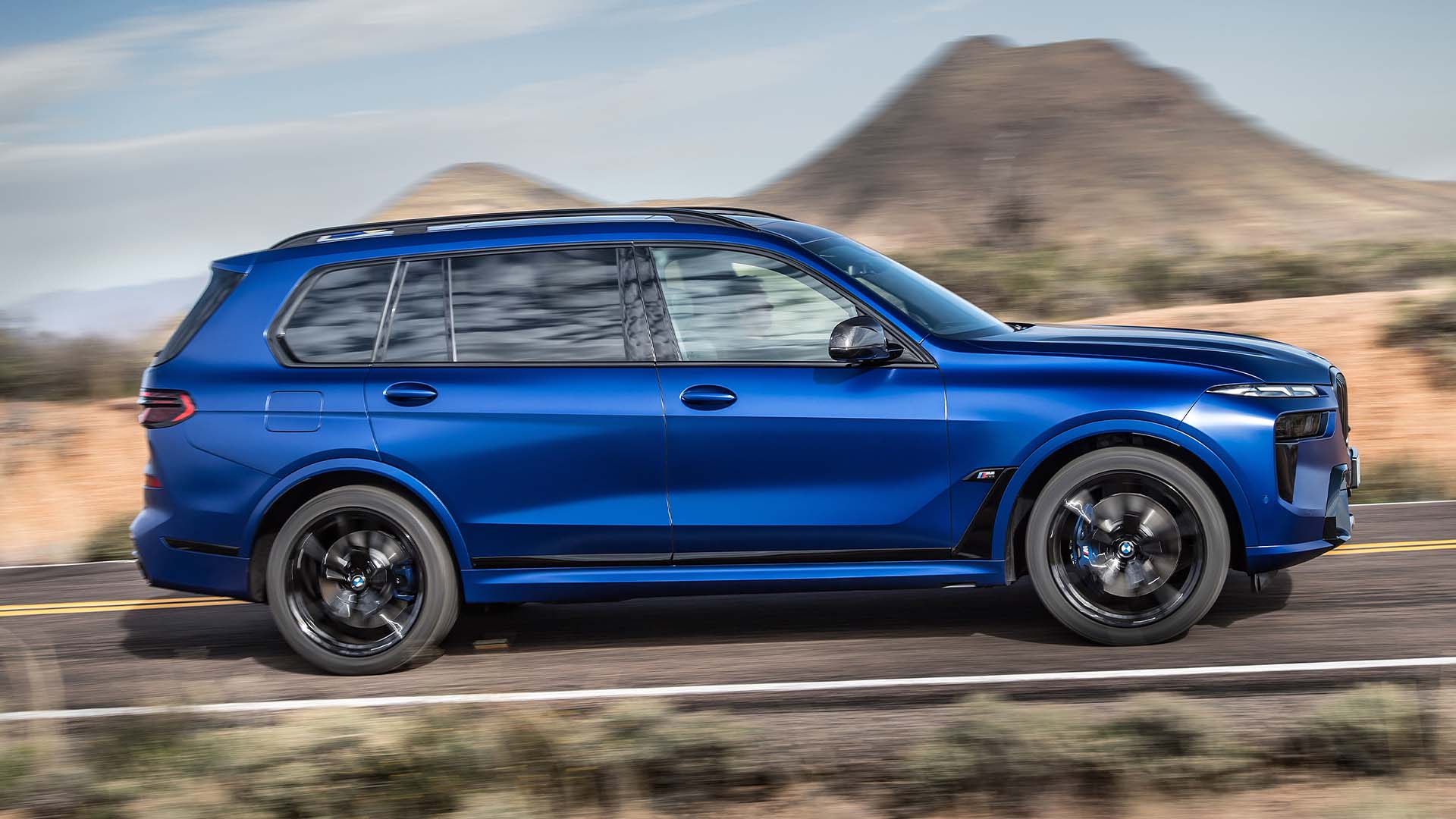

It doesn’t take an expert to realize that cars these days are big. Depending on who you talk to, they might say they’re way too big. Even though they’re not all like the long, steel land yachts we used to see from some American makes like Cadillac, they’re still tall, wide, and heavy—especially as we transition to battery power. This has sparked concern in more than a few environmental and safety groups, though if you ask BMW, the industry is pretty much capped on outright heft.
The 7 Series‘ project manager Christoph Fagschlunger said as much during an interview with Australia’s Car Sales. And while it wouldn’t be wise to take his word as the end-all authority, since he simply can’t speak for every automaker, he’s still a subject matter expert of sorts. That’s why his quote stands out.
“I don’t think cars will get more heavy than they are now, and there are many reasons for that,” Fagschlunger explained. “For us, as a company who offers passenger vehicles, it is still possible to cover all the requirements within the existing weight restrictions.”
Those weight restrictions he’s talking about exist throughout Europe, Australia, and more where drivers need a special license endorsement to pilot heavy vehicles. For example, a European Class B license limits drivers to vehicles 3.8 tons or lighter, which wouldn’t cover the 9,046-pound GMC Hummer EV. I understand that’s an extreme case, but the point stands.

Batteries can be credited for some of this, though they’re not all that’s driving weight up, up, up. The other key factors are safety and luxury, which cars like the Hummer EV and BMW i7 have lots of; combine the three and you’ll see how drastic the difference is. Fagschlunger explained that there’s a 1,100-pound difference between the gas-powered 760i and a top-shelf electric i7. The latter tips the scales at 5,280 pounds, which is slightly more than a crew cab 2022 Chevy Silverado but still under that aforementioned Class B limit.
“Let’s see what the future brings, because energy will be reduced to a lower volume and more energy in the same weight or less weight. That’s the way battery development goes,” Fagschlunger continued. “Size of cars will have a natural ending someday, when you can’t fit in the garage or turn around on the street corner. That day is getting closer.”
“More comfort now will not gain more weight,” he added. “Technologies to get comfort are getting smarter. You can kill road noise with masses all around the car, or you can have active road noise cancellation.”
Hopefully, that’s true for the sake of material supply, pedestrian safety, and the environment. We’re only just starting to learn how much more these large vehicles increase tire pollutants in the air and in the ocean. As automakers look to make their cars cleaner by totally cutting out tailpipe emissions, it’s crucial to look at every area where better practices can be put into place. This is certainly one of ’em.
Got a tip or question for the author? Contact them directly: caleb@thedrive.com